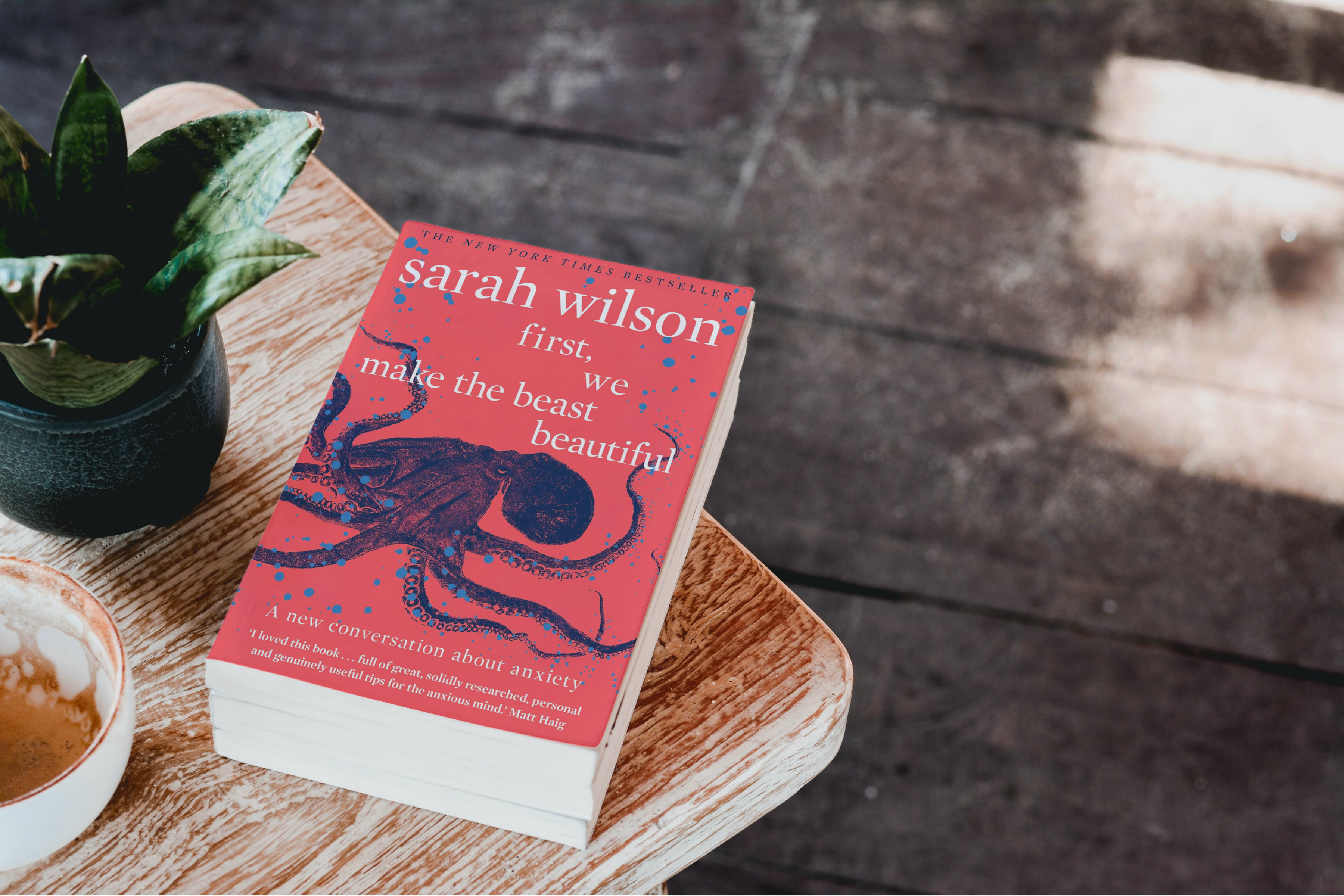Book Review: First, We Make the Beast Beautiful
Another month, another book review.
For those of you who follow the First Steps ED blog, you might already know my resolution was to read more books (I kept it simple this year), and so far, so good! Whilst I’m not reviewing every book I’m reading because not all would be MH-relevant, it is probably quite fair to say I’m selfishly using this space for accountability, and allowing myself to reflect on the books I think have an impact. And, of course, if it helps you with your own Spring reading list then great!
[Note: if something has helped you with your own mental health understanding or recovery, feel free to submit your own review! I’d love to hear more about what you’re reading, watching or listening to at the moment!]
I got Sarah Wilson’s First, We Make the Beast Beautiful for Christmas from the in-laws, and I picked this as my second read of the year because of the cover! Probably not to everyone’s taste, but the smooth neon cover and edgy octopus simply spoke to me.
It was a quick read thanks to two particularly long train journey’s I had over the week, but I’m not sure speed is a good reflection of my feelings towards the book. For me, it wasn’t particularly a page turner. To be honest I think I’m still forming an opinion even now as to what I feel about the book.
I’ll try to be honest.
I liked it. The pages are filled with personal experience, and filled with Wilson’s wisdom and lessons learnt over the years, but throughout it feels quite a frenetic read. I found it quite hard to follow at times, especially since our lives feels such worlds apart?
One thing I generally like about this genre is hearing new perspectives and understanding that all of our journeys are the same, but very different. I like to listen and understand the different paths we all take with our mental health and the struggles we go through because it helps us feel less alone in what we are feeling, as well as offer new meaning to those emotions. For Wilson’s story though, it felt kinda unrelateable.
Her perspective, whilst absolutely valid, feels very privileged. Whilst I’m sure many will resonate with her story, to me her life and experiences feel out of touch. I can’t be impulsive like in the book. I can’t just take a month out and find a retreat or sanctuary to hide away in, I don’t have the financial freedoms to leg it.
Because of that I felt like I switched off at times, as though this wasn’t really the book for me.
In saying that though, her thoughts and feelings do feel relatable. I loved her pockets of insight, exercises, research and wisdom which came as like a free gift with each chapter.
One snippet (off the top of my head) was how we should try and do things back-to-front. I loved this! In fact, I tried Wilson’s example to put your head where your feet normally go when you get into bed to help you see what you always see – but in a different way. It’s funny how something so simple can help you pause and see things from a new perspective… I did get a strange look from my boyfriend though. Ah well.
Whilst chaotic, the memoir is sincere. You can feel Wilson’s passion throughout which is probably why I didn’t give up on the book. She is very honest and open about every episode in her life. From the very start, we get to know Wilson, and her diagnoses. She does not shy away from the labels, (anxiety, depression, mania, bulimia and obsessive-compulsive disorder) but the labels don’t feel important. Instead, the book focuses on the experience, preferring to explore those ‘dark places’ in order to find the ‘something else’, the wholeness, the peace.
I think the key takeaways from the book are that Wilson learnt that meditation, exercise and ‘sitting with her discomfort’ were her invaluable tools for healing, moving away from impulsivity and the desire to flee when things got difficult. And I get that. Mindfulness and understanding helps, that isn’t ground-breaking news but Wilson’s story sure does highlight that very well.
Closing thoughts?
The book teaches us how to handle life and difficult situations, which I think can go beyond anxiety, but it can be a difficult read at times. If you decide to read this, do so with an open mind. There is good advice and some not-so-good advice, so take some of Wilson’s words with a pinch of salt and if you don’t feel like it’s for you put it down and move onto the next read.
If you’ve read First, We Make the Beast Beautiful, drop me a message and let me know your thoughts. I think I’m possibly still forming my opinion even now! Maybe ask me again tomorrow.



